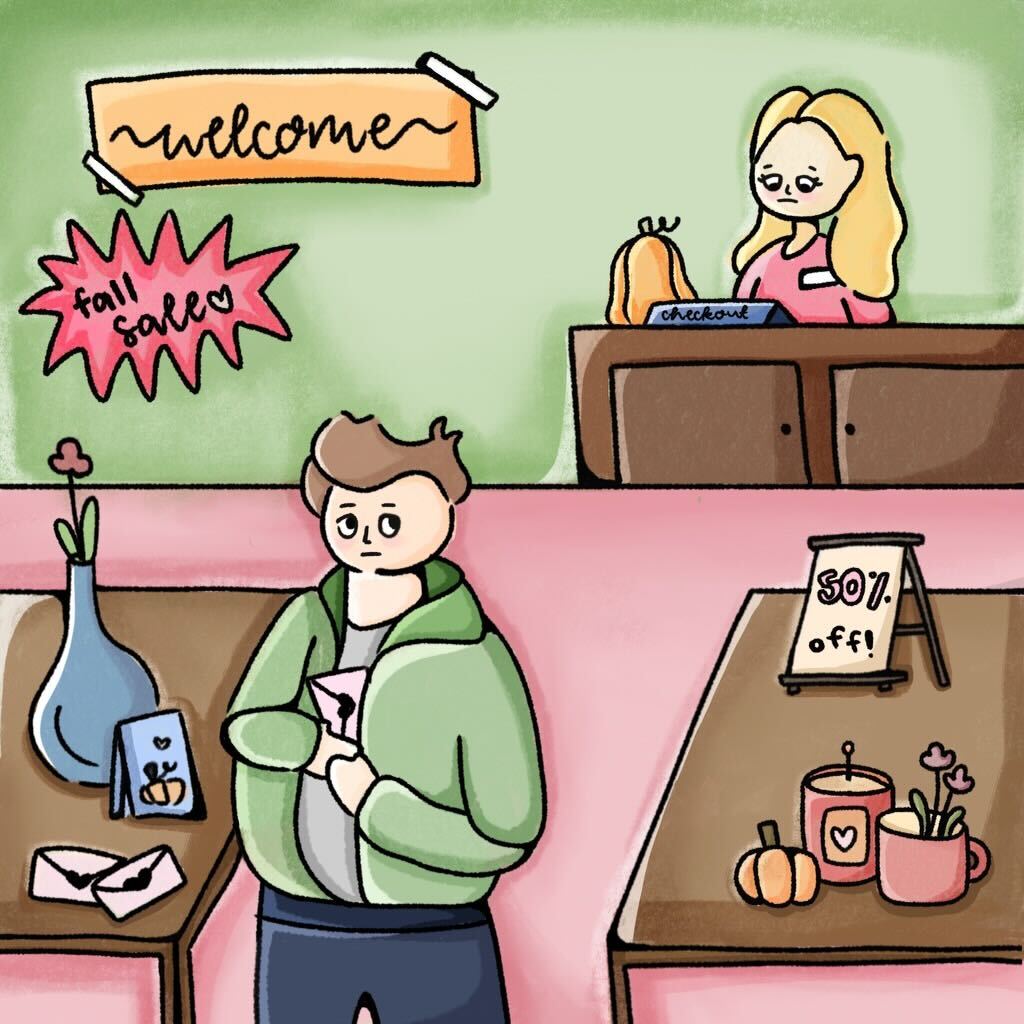A man with his face veiled by a blue scarf saunters through the aisles of a convenience store, pushing a large rolling garbage can with one hand and haphazardly sweeping in merchandise with his other.
Employees look on helplessly, but not for long.
As bystanders mock the owners while filming the unfolding scene, saying, “There is nothing you can do,” an employee grabs the attempted robber while another strikes him repeatedly with a stick to the point of the robber shouting to be left alone.
A recording of this incident which took place in Stockton in August has been covered extensively in the media, with, many commenters praising the employee for punishing the thief and defending his store.
Some commenters even suggested an increased need for vigilante justice.
With this incident and others like it in the State, in September, California legislators passed California Senate Bill 553, introduced by California State Senator Dave Cortese.
This bill mandates that employers create violence prevention plans and ensure their employees are adequately prepared to carry out the plan.
According to Cortese’s website, he also proposed SB 553 in response to the mass shooting at Santa Clara Valley Transportation Authority in 2021, and a 63% and 75% increase in grocery and convenience store assaults respectively.
The bill says employers must log all prior violent incidents; instruct their employees on how to report incidents; inform staff how to access security assistance; assign personnel responsible for implementing a safety plan; train employees on the plan and have an annual review of it; and create clear procedures for responding to violent emergencies including evacuation and sheltering plans.
Assembly member Marc Berman from the 23rd District, which encompasses Palo Alto, said he supports SB 553 because it will increase safety during a period of rising workplace aggression.
“We must do more to protect California workers from workplace violence,” Berman said. “SB 553 was a timely and thoughtful proposal that strengthens worker protections by ensuring that workplaces are better prepared to prevent violence.”
Keen Footwear Assistant Manager Sabina Hentz said the provisions of SB 553 are consistent with the current practices of many stores including hers.
“These are essentially our current protocols,” Hentz said. “We are instructed to stay away from intruders and are not expected to intervene if any violence occurs. We are instructed to call the police.”
While being mandated not to have any direct confrontations with violent individuals, Hentz said employees still feel apprehensive about the possibility of robberies.
“We have had break-ins, but while the store was closed,” Hentz said. “It’s unfortunate, but in the times we live in, we have to remain vigilant when people come in.”
However, Hentz said developing a clear plan benefits employees, making them feel more prepared.
“If any violent incidents occurred, I would not feel prepared to take direct action,” Hentz said. “I think having (a plan) will be useful in dealing with (these cases).”
CVS Operations Manager Gus Alcazar said safeguarding employees is of increasing importance as shoplifting becomes more pervasive.
“(CVS) gets hit every day. It can be very quick. Someone will just snatch something and will immediately take off and they’re gone,” Alcazar said. “All different areas get hit. We see it all, but unfortunately we cannot do anything to stop them.”
In fact, Alcazar said SB 553 does not do enough to protect businesses. Under this bill, the only way an employee can respond is asking the suspected shoplifters questions.
“We offer good customer service to them because whatever they have stolen at this point is a lost cause. All we can do is reduce the damage done (and) stop them in their tracks,” Alcazar said. “We can ask people who are doing it, ‘Do you need a basket for that?’ or ‘Did you pay for that?’ or ‘I can help you out at the register.’ But if they choose to leave, we’re not allowed to follow anybody or say ‘Hey, we need the stuff back.’”
Vans Assistant Manager Danielle Briggs Briggs said this is also the case at Vans.
“At this company, we have a model that we use called our easy model,” she said. “We just have to customer service everything. There is not necessarily a policy of what to do other than just reporting when we have shoplifting incidents. To prevent it, we just need to make sure that we are checking in with customers multiple times to make sure they know we are here watching and that they don’t get a chance to steal. If it happens, we have to report it, and then the company handles it.”
And Alcazar said employees can only take action if shoplifting incidents occur frequently.
“Ultimately, if it does become something that happens daily, we can call the police,” Alcazar said. “We try to avoid confrontations and (not) call them out and say, ‘Hey, you’re stealing that’ because they can become aggressive, and we have had those cases. We had one incident where a gentleman got right into my associate’s face and got very aggressive, so we asked him to leave, and he did.”
For cases of customer aggression, Briggs said the safest option is to not get involved.
“It depends on the type of violence,” Briggs said. “If there are hands or weapons involved or any physical altercations from the customer, we just have to call the police. But otherwise we just call the company, the loss prevention manager or the district manager and let them know the situation. The number one priority is our safety, so if something seems dangerous, we just back away.”
Alcazar said that although he appreciates prioritizing employee safety, he wishes there was more that could be done.
“You don’t want to put you or any of your fellow employees at risk for a stick of deodorant,” Alcazar said. “It’s not worth it for any of us to get hurt. But at the same time, I wish there was something more done to condemn (stealing) because it is becoming more and more common nowadays. People know they can’t get in too much trouble with the law because there is a certain limit with money that they can take, and if they keep it below that amount, then there is really just a minor slap on the wrist.”
Briggs said he agreed.
“I would not change anything about the way we handle things,” Briggs said. “I know it can be more personally heartbreaking knowing that we can’t do anything, but I know at the end of the day that it is the safest for us, so I do appreciate our safety being prioritized more than anything else.


